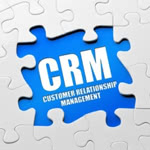CRM
Building the Business Case for CRM

You know you need it. Your colleagues know you need it. But you still need to convince those who hold the purse strings and make the final decisions. Building a business case for ERP, CRM, or indeed any internal system requires a thorough knowledge of business challenges, growth strategy, its culture, and its people.
Getting buy-in for CRM is an art, and one that often results in failure. Without an effective system in place, it’s hard to bridge the gap between as-is and desired situations. You require support from the very top–and here’s how to get it…
Align your business case to business objectives
You cannot “drop in” a business case template and hope that it will get accepted. The business challenge that will be met by CRM has to be put into the context of the long-term business growth strategy. If, for example, the business has a plan to develop new markets, how will the CRM support these aims?
Translating everything into C-level language so that the purpose of the CRM aligns itself perfectly with company-wide objectives will form the foundation of getting the business case approved.
Demonstrate failings from the customer viewpoint
When you speak of high customer churn, what does that mean from the customer viewpoint? Dissatisfaction. To build the business case, we need to shift away from internal decision influencers such as churn and lead conversion, and put them in a customer context.
Expanding this, how will CRM improve the customer experience? The key here is to highlight issues customers are experiencing, and the damaged perception that you’re attempting to repair. This attempt to use systems to bridge that gap is what can make the difference between acceptance and refusal.
Illustrate your “quick wins”
Warren Butler, from MS Dynamics partner Preact, recommends the “quick wins” approach, in which initial deployments are made to high-priority teams, helping establish results at an early phase. This approach can be particularly useful when budgets are tight and senior leaders need convincing before making further investment.
Once those early results are bedded in, it’s easier to obtain buy-in for the full business case. The key, however, lies in pinpointing those areas where the “quick wins” will have the most visible impact.
Be clear about the future vision
The future is not always picnics in rose gardens, but expressing a clear vision for the future state of the business is a welcome, engaging way of building the business case for CRM. It’s not just the metrics, it’s how those metrics transpose themselves into real-world scenarios. If the metric you’re looking at is an increased customer retention rate, what would that mean from a financial point of view? If the metric you’re looking at is improved data integrity, how might that look from a senior leadership point of view?
The business case is, despite its precision and weight, an opportunity to express a vision and equally stress the point that the business is not yet at this particular point. Without belaboring it, of course.
Real-world case studies
We live in a highly networked world. It is therefore highly unlikely that your senior team members do not know individuals from within their networks who have not undergone similar implementations. Indeed, these highly personalized case studies can do half of the influencing for you.
Failing that, there are hundreds of case studies available online that can provide examples of successful implementations, many of them with real-world ROI figures. Having the ability to leverage networks is powerful.
Remember…
A business case is based in the emotive as much as it is in the real. It’s read by real people, who know real people who have experienced similar implementations. The key to gaining approval of CRM implementation is to understand the impact, and align everything with two factors – the customer experience, and the business objectives. Achieve this alignment, and acceptance is only a step away.
Looking for more tips on choosing or implementing a CRM solution? Peruse all of our content on CRM products, best practices and industry insights by visiting the CRM Software resource page.






